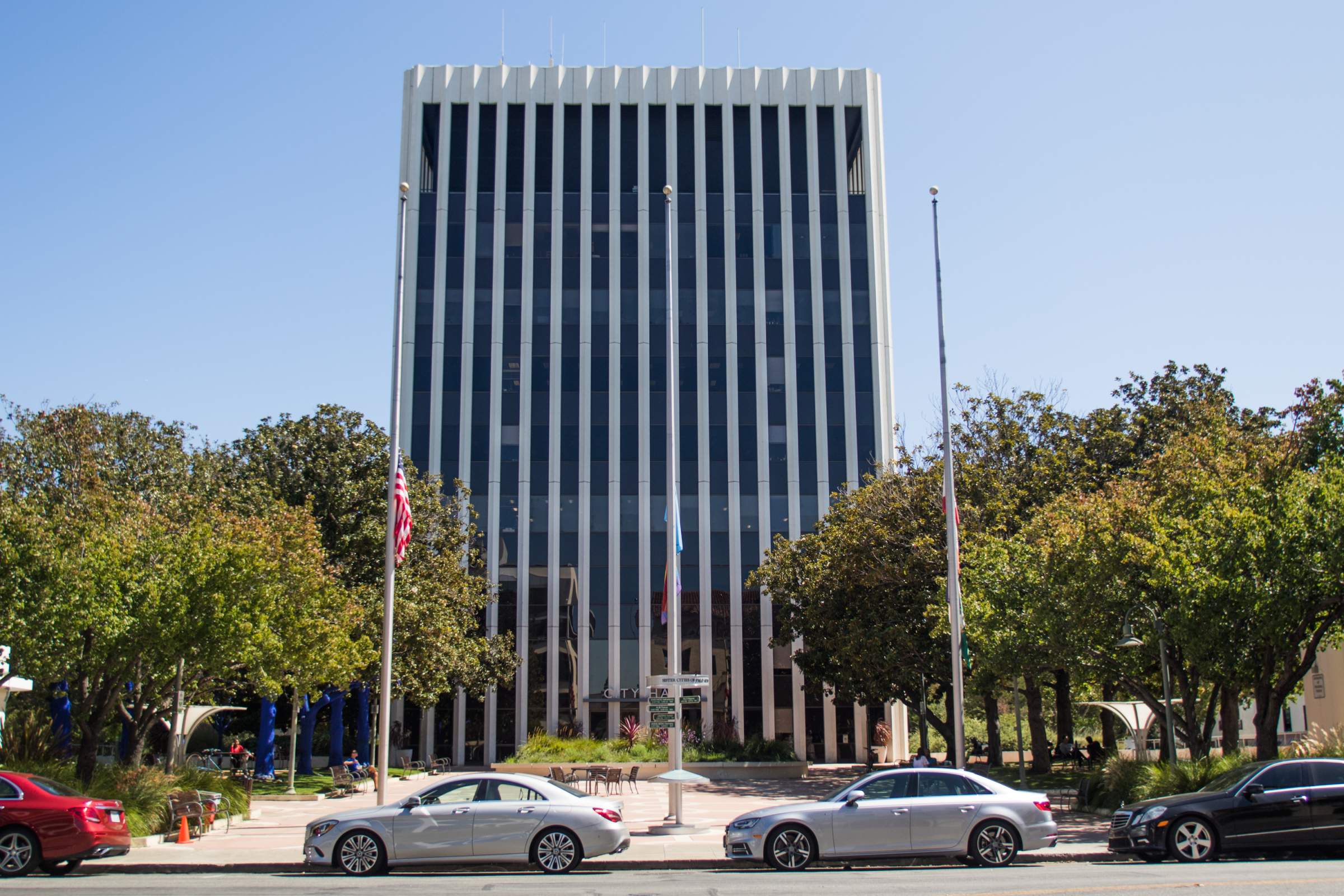As Palo Alto prepares to issue a refund to a downtown developer who sued the city over parking fees, the two sides remain at odds over the exact amount that is owed.
The next skirmish in the legal battle between Palo Alto and Hamilton and High LLC, a corporate entity owned by developer Charles "Chop" Keenan, will take place on Jan. 24, when the two sides return to court to sort out the payment amount and schedule. In a filing earlier this month, attorneys Hamilton and High argued that the city now owes it more than $1.1 million.
At the heart of the dispute is the $906,900 in in-lieu parking fees that Hamilton and High made in 2013 as part of the approval process for its proposed development for a mixed-use building at 135 Hamilton Ave. The fees were intended to help the city pay for a downtown parking garage — a project that the council was considering a decade ago. But after including the garage in its 2014 infrastructure plan, the council reversed course in 2019 and hit the pause button on the project after spending about $1.3 million on design work.
The project remains in limbo to this day, with the council recently inviting housing developers to submit proposals for downtown parking lots that would include both affordable housing and parking. As this publication has previously reported, the city received proposals for such projects earlier this year from the nonprofit developers Alta Housing and MidPen Housing.
The city has been arguing that because it is still pursuing a downtown parking project (albeit, with the addition of housing) the in-lieu parking fund remains legitimate. Hamilton and High disagreed and demanded a refund. In May 2021, the developer filed a lawsuit that alleged that the city has not been using the money he had contributed for its intended (and legally binding) purposes.
Palo Alto scored an early victory in the legal battle in 2021, when a Santa Clara County Superior Court judge sided with the city but warned that the further inaction by the council on a new garage may ultimately require it to pay Hamilton and High restitution. The warning proved prescient as the Court of Appeals struck down the lower court's earlier this year and directed Palo Alto in its March ruling to refund the fees to the developer.
Breaking with the lower court, the 6th District Court of Appeals concluded that the city had violated the Mitigation Fee Act, which requires cities to issue reports every five years detailing how the collected funds had been spent. The city had submitted such reports in 2009 and 2014 but it failed to do so in 2019 (the council tried to remedy that by approving a report in 2020). The violation, according to the appeals court ruling, triggers the refund provision of the act for the unexpended funding.
"We recognize that the prescribed remedy for an agency that has not made the required five-year findings to 'refund the moneys in the account or fund' might be viewed as severe where the error or omission in making the required findings could be perceived as slight or emendable," Justice Allison Marston Danner wrote on behalf of the three-member panel. "However, such speculation about the preferred policy outcomes or possible mitigators goes beyond our role in interpreting the statutes."
The appeals court remanded the case back to the Superior Court to determine the exact amount and method of "unexpended" funds that the city needs to refund. Attorneys representing the city have been arguing that it was completely appropriate to spend $1.3 million from the parking fund for design and environmental analysis of a new downtown garage, which was initially eyed for the parking lot on Hamilton Avenue and Waverley Street.
Attorneys for Hamilton and High are countering in the recently filed brief that the parking fund, which currently has more $6 million, was intended exclusively for construction and that the city's use of this revenue source design and environmental work was improper. Because, in their view, the city had not made any lawful expenditures from the parking fund, it needs to refund the entire $906,900 that Hamilton and High had contributed in 2013 as well as add 8% interest for every month since January 2020, when the fees should have been returned.
According to a brief that David Lanferman, attorney for Hamilton and High, filed on Nov. 3, the interest payments add up to $266,024.
The City Council discussed the ongoing litigation in a closed session on Monday night but did not take any reportable action. The city's reply brief is due on Dec. 7, according to City Attorney Molly Stump. Landferman's filing notes that the city has been arguing that the refund should be much less than what is sought by the developer.
By law, the city can issue a refund by direct payment, through a temporary suspension of fees or by any other "reasonable means," Lanferman wrote. In this case, he argued, a direct payment would be the only reasonable option. He is requesting in the brief that the court issue a judgment ordering the city to make a timely cash refund of $906,900 plus interest.
"The direct payment of a cash refund is the only effective and lawful refund remedy here, since there is no evidence that Petitioners plan any further development activity subject to fees," Lanferman wrote.



Comments
Registered user
Midtown
on Nov 15, 2023 at 4:36 pm
Registered user
on Nov 15, 2023 at 4:36 pm
Chop Keenan in a dispute with the city. Big surprise (not).